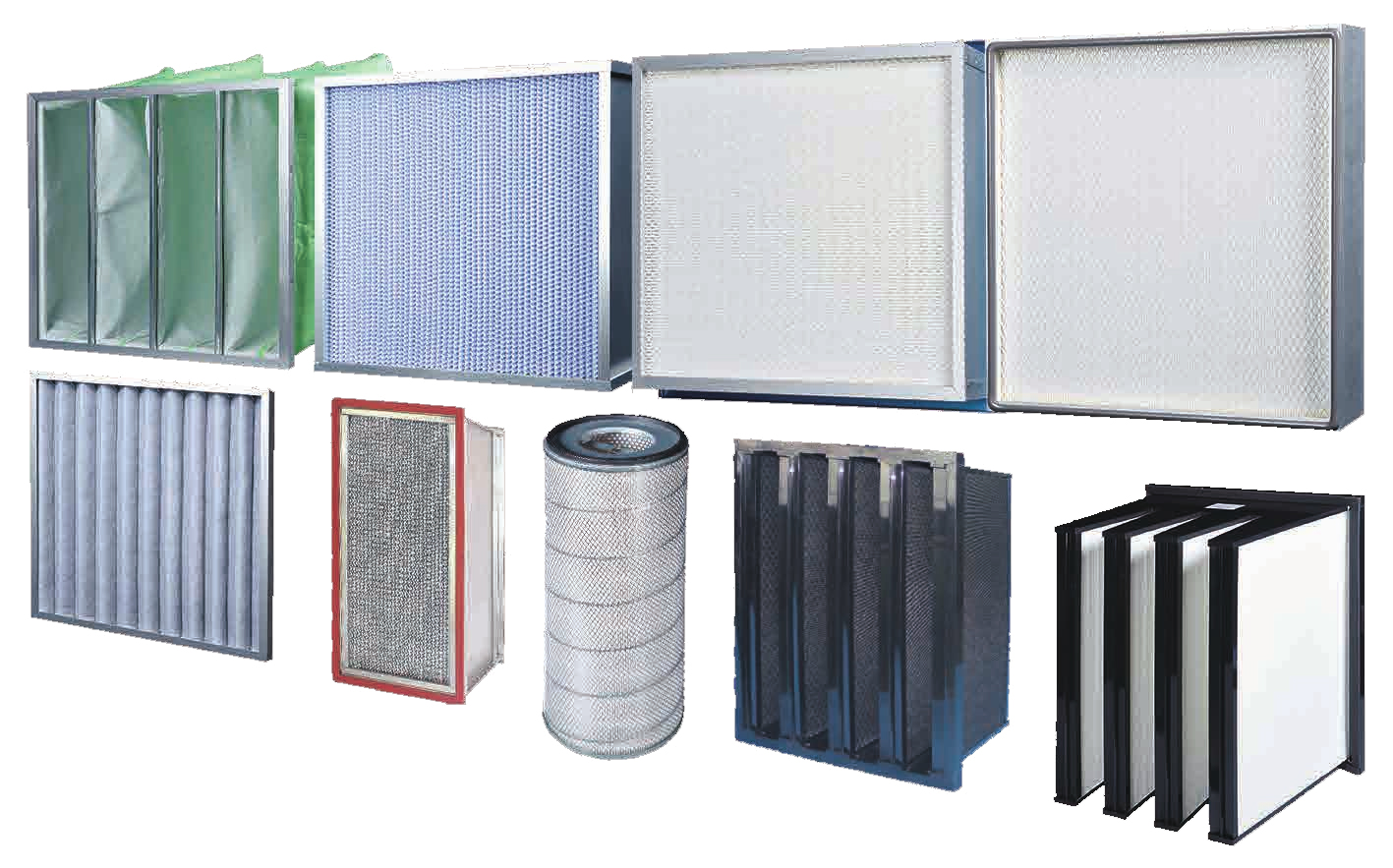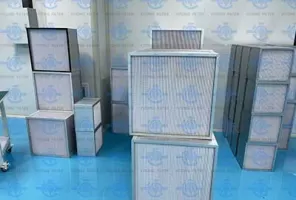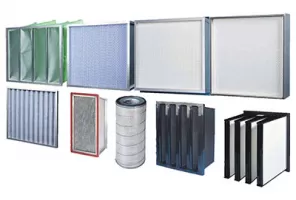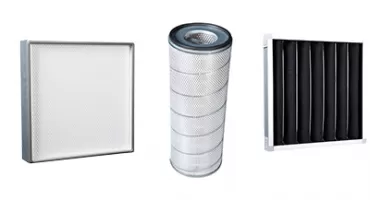 December 18, 2024
December 18, 2024
In today's industrial landscape, air quality plays a crucial role in maintaining operational efficiency, worker safety, and environmental compliance. Industrial air filters are the unsung heroes in manufacturing, processing, and production facilities, where air quality is constantly under threat from dust, contaminants, and pollutants. Understanding how industrial air filters function and the various types available can help businesses choose the right filter for their specific needs, ensuring both productivity and safety. This comprehensive guide explores the functions of industrial air filters, their importance, and the various applications across industries.

Industrial air filters are devices designed to remove airborne particles, contaminants, and pollutants from the air within an industrial setting. These filters are essential for maintaining clean air, protecting equipment, and ensuring compliance with health and safety standards.
1. Filter Media: The material that captures and holds particles. Common materials include fiberglass, synthetic fibers, activated carbon, and metal mesh.
2. Frame: Provides structural support and ensures the filter media stays in place.
3. Seal: Prevents air bypass, ensuring all air passes through the filter media.
Industrial environments generate a variety of airborne pollutants. Without effective filtration, these contaminants can:
- Harm Worker Health: Prolonged exposure to contaminated air can lead to respiratory problems, allergies, and long-term health issues.
- Damage Equipment: Dust and debris can clog machinery, causing breakdowns and reducing efficiency.
- Impact Product Quality: In industries like food, pharmaceuticals, and electronics, air contaminants can compromise product integrity.
- Violate Regulations: Many industries are subject to strict air quality regulations. Non-compliance can lead to fines and legal consequences.
1. HEPA Filters (High-Efficiency Particulate Air)
- Function: Removes at least 99.97% of particles as small as 0.3 microns.
- Applications: Cleanrooms, pharmaceutical manufacturing, food processing, and electronics.
- Benefits: Exceptional efficiency in removing fine particles, ensuring high air purity.
- Function: Removes gases, odors, and volatile organic compounds (VOCs).
- Applications: Chemical plants, laboratories, and waste management facilities.
- Benefits: Excellent for odor control and removing harmful gases.
3. Bag Filters
- Function: Captures dust and particles in large volumes.
- Applications: Cement plants, mining, woodworking, and metal fabrication.
- Benefits: High dust-holding capacity and cost-effective for large-scale applications.
- Function: Filters fine particles with pleated media for increased surface area.
- Applications: Paint booths, welding operations, and powder coating.
- Benefits: Compact design, high efficiency, and easy maintenance.
- Function: Basic filtration for capturing larger particles.
- Applications: HVAC systems, manufacturing plants, and warehouses.
- Benefits: Cost-effective and suitable for pre-filtration.
6. Electrostatic Precipitators (ESPs)
- Function: Uses electrical charges to capture particles.
- Applications: Power plants, steel mills, and paper manufacturing.
- Benefits: Effective for high-volume particle collection and low maintenance.
The functionality of industrial air filters depends on their design and purpose. Here’s a step-by-step breakdown of how most filters operate:
1. Air Intake: Contaminated air enters the filter system.
2. Filtration Process: Air passes through the filter media, which captures particles based on size, charge, or chemical composition.
3. Clean Air Output: The filtered air exits the system, meeting cleanliness standards.
4. Collection and Disposal: Captured contaminants are collected, and filters are either cleaned or replaced based on their type.
Selecting the correct air filter involves understanding your specific needs and the contaminants present. Consider the following factors:
1. Particle Size: Identify the size of particles you need to remove. HEPA filters are ideal for microscopic particles, while bag filters are suitable for larger dust particles.
2. Airflow Requirements: Ensure the filter can handle the volume of air in your facility without restricting airflow.
3. Industry Standards: Compliance with industry-specific regulations (e.g., ISO standards, OSHA guidelines) is essential.
4. Maintenance Needs: Evaluate how often filters need to be cleaned or replaced to avoid downtime.
5. Cost: Balance between initial costs and long-term maintenance.
1. Improved Air Quality
- Reduces harmful pollutants and allergens, protecting workers and products.
2. Equipment Protection
- Prevents dust buildup in machinery, extending equipment lifespan.
3. Regulatory Compliance
- Ensures adherence to local and international air quality standards.
4. Enhanced Productivity
- Clean air leads to healthier workers, fewer sick days, and more efficient operations.
5. Environmental Protection
- Reduces the release of harmful pollutants into the environment.
1. Manufacturing
- Removes dust, metal shavings, and chemical fumes.
2. Pharmaceuticals
- Maintains sterile environments essential for drug production.
3. Food and Beverage
- Ensures product purity by filtering contaminants.
4. Automotive
- Filters paint particles, exhaust fumes, and welding dust.
5. Electronics
- Keeps sensitive equipment free from dust and static charge.
Proper maintenance is essential to keep air filters functioning effectively. Here are some best practices:
1. Regular Inspections: Check filters for signs of clogging or damage.
2. Scheduled Replacements: Replace filters according to manufacturer guidelines.
3. Cleaning Procedures: For washable filters, ensure proper cleaning to maintain efficiency.
4. Monitor Air Quality: Use sensors to track air quality and filter performance.
Industrial air filters are critical components in maintaining clean, safe, and efficient workplaces. By understanding their functions, types, and applications, industries can make informed choices to protect their workers, equipment, and products. Investing in the right air filtration system not only boosts productivity but also ensures compliance with health and safety standards. Whether you're in manufacturing, pharmaceuticals, or any other sector, clean air is essential for long-term success.
 Oct. 11, 2024
Understanding Terminal HEPA Filters: The Key to Clean Air
Oct. 11, 2024
Understanding Terminal HEPA Filters: The Key to Clean Air
 Jun. 19, 2024
Key Points in the Selection and Design of Filters for Ventilation and Air Conditioning Systems
Jun. 19, 2024
Key Points in the Selection and Design of Filters for Ventilation and Air Conditioning Systems
 Jan. 15, 2024
Air Filters Used in the Electronics Manufacturing Industry
Jan. 15, 2024
Air Filters Used in the Electronics Manufacturing Industry
Choose Yitong Filter to help maintain production operations and ensure the safety of workers.